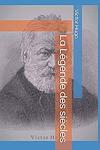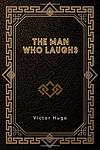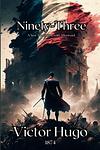Victor Hugo
Victor Hugo was a renowned French poet, novelist, and playwright of the 19th century. He is best known for his novels 'Les Misérables' and 'The Hunchback of Notre-Dame'. Hugo's works are celebrated for their profound social commentary and exploration of human rights, and he is considered one of the greatest and best-known French writers.
Books
This list of books are ONLY the books that have been ranked on the lists that are aggregated on this site. This is not a comprehensive list of all books by this author.
-
1. Les Misérables
Set in early 19th-century France, the narrative follows the lives and interactions of several characters, particularly the struggles of ex-convict Jean Valjean and his journey towards redemption. The story touches upon the nature of law and grace, and elaborates upon the history of France, architecture of Paris, politics, moral philosophy, antimonarchism, justice, religion, and the types and nature of romantic and familial love. It is known for its vivid and relatable characters, and its exploration of societal and moral issues.
-
2. The Hunchback of Notre-Dame
Set in 15th-century Paris, this novel follows the story of Quasimodo, a deformed and hunchbacked bell-ringer of Notre-Dame Cathedral, who is shunned due to his appearance. Despite his physical deformities, Quasimodo falls in love with the beautiful gypsy girl, Esmeralda. However, his love is unrequited as she is in love with a handsome soldier. The novel explores themes of love, rejection, and the human struggle against fate and societal norms.
-
3. The Toilers Of The Sea
The novel is a tale of love and heroism set on the Channel Island of Guernsey, where a reclusive fisherman falls in love with the beautiful niece of a local shipowner. When her uncle's ship is wrecked on a treacherous reef, the fisherman heroically volunteers to salvage the engine that could save the shipowner from ruin, hoping to win the niece's heart. The story unfolds as a gripping adventure of man against the sea, as the protagonist battles the elements, isolation, and his inner demons on his quest, exploring themes of nature's indifference to human struggle, the dignity of labor, and the human spirit's capacity for courage and sacrifice.
-
4. Les Contemplations
"Les Contemplations" is a collection of poetry that explores themes of love, nature, and spirituality. The work is divided into two parts, with the first half focusing on the author's personal experiences, including his childhood, his family, and the loss of his daughter. The second half, in contrast, delves into more philosophical and existential themes, reflecting on the nature of life, death, and the human condition. The poems are renowned for their lyrical beauty, emotional depth, and profound exploration of human experiences.
-
5. La légende des siècles
"La légende des siècles" is a series of poems that collectively provide a sweeping overview of the history and evolution of humanity. The collection, divided into three series, explores various periods and characters from the past, present, and future, from the Biblical times to the Middle Ages, and from historical figures to fictional characters. The author uses these stories to express his philosophical and moral views, and to explore themes such as the struggle between good and evil, the pursuit of progress, and the potential for redemption and spiritual growth.
-
6. The Man Who Laughs
Set in 17th-century England, the novel follows the life of a disfigured boy, abandoned as a child on a winter's night, who is taken in and raised by a kind-hearted showman. The boy grows up to become a popular performer due to his permanent grin, a result of a cruel mutilation inflicted by a group of comprachicos. His life is marked by a series of dramatic turns, including love, nobility, and political intrigue. As he navigates a society that is both repulsed by his appearance and captivated by his entertainment, the narrative delves into themes of inner beauty, the nature of humanity, and the corrupting influence of wealth and power.
-
7. Ninety Three
Set during the French Revolution's tumultuous year of 1793, the novel delves into the harrowing period of the Reign of Terror, exploring themes of conflict between duty and conscience. It follows the lives of three main characters: a royalist, a revolutionary, and an orphan girl, whose paths intersect amidst the chaos of civil war. The narrative grapples with moral and ideological dilemmas, as characters are forced to choose between their loyalties and their humanity. The book vividly portrays the struggles of the time, from the fierce battles at sea to the fierce debates in the National Convention, culminating in a powerful examination of revolution, redemption, and the relentless march of history.
-
8. The Distance, The Shadows
"The Distance, The Shadows" is a poignant exploration of the human condition, delving into themes of love, loss, and the inexorable passage of time. Set against a backdrop of social upheaval, the narrative weaves together the lives of disparate characters, each struggling with their own inner demons and societal constraints. The novel's rich tapestry of emotion and philosophical musings paints a vivid picture of the struggle between the light of hope and the darkness of despair, as the characters navigate the distances between their dreams and realities, and the shadows that fall upon their paths. Through its intricate storytelling, the book examines the enduring question of what it means to be human in a world fraught with challenges and change.







